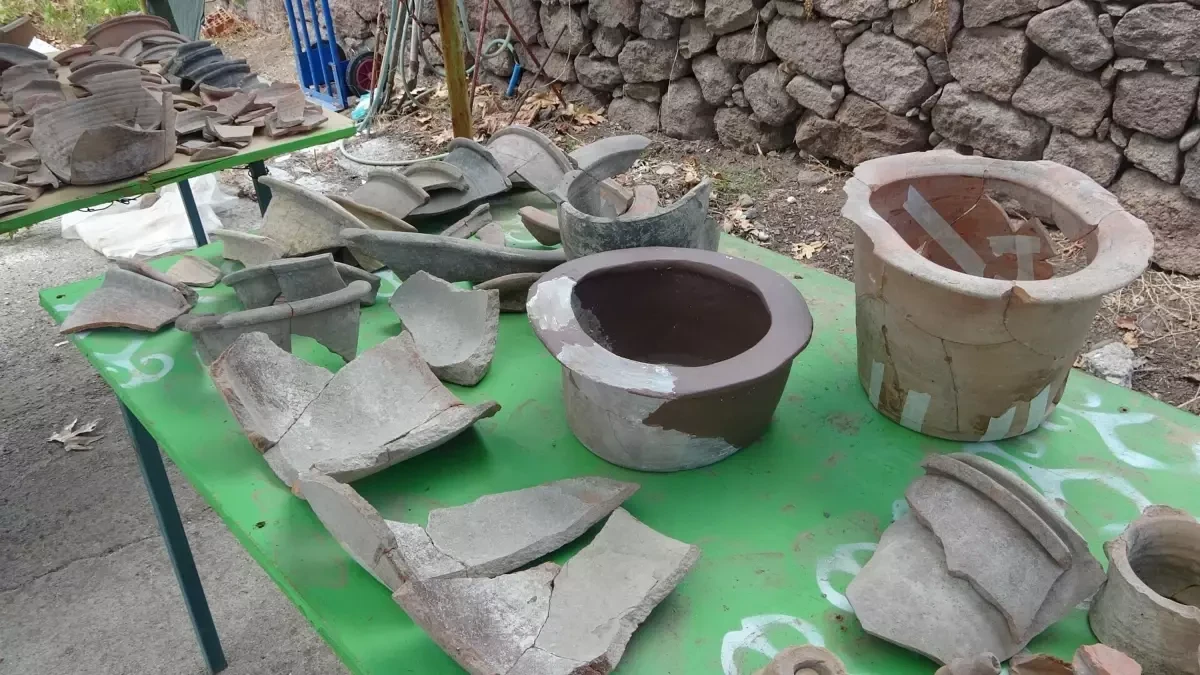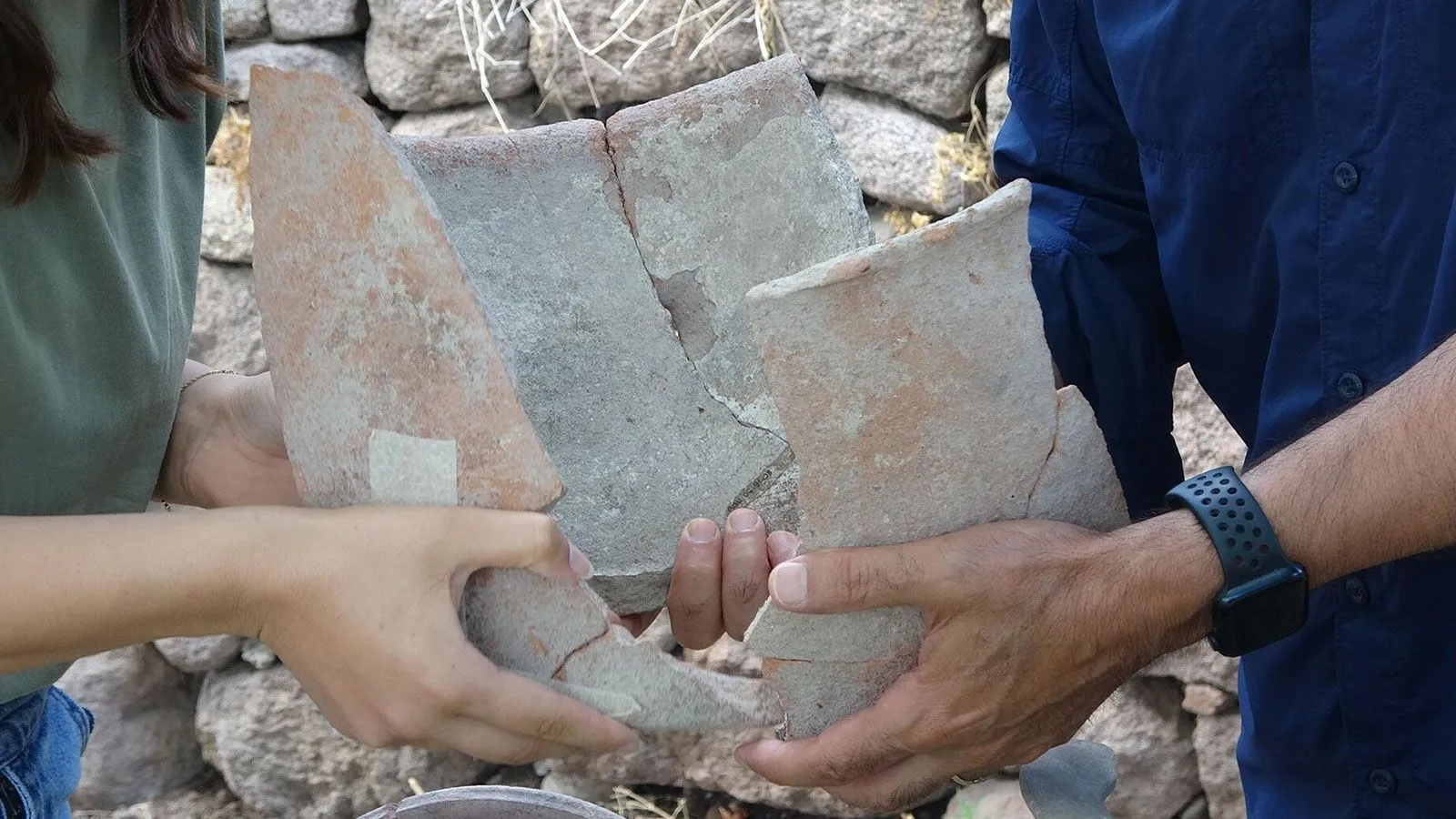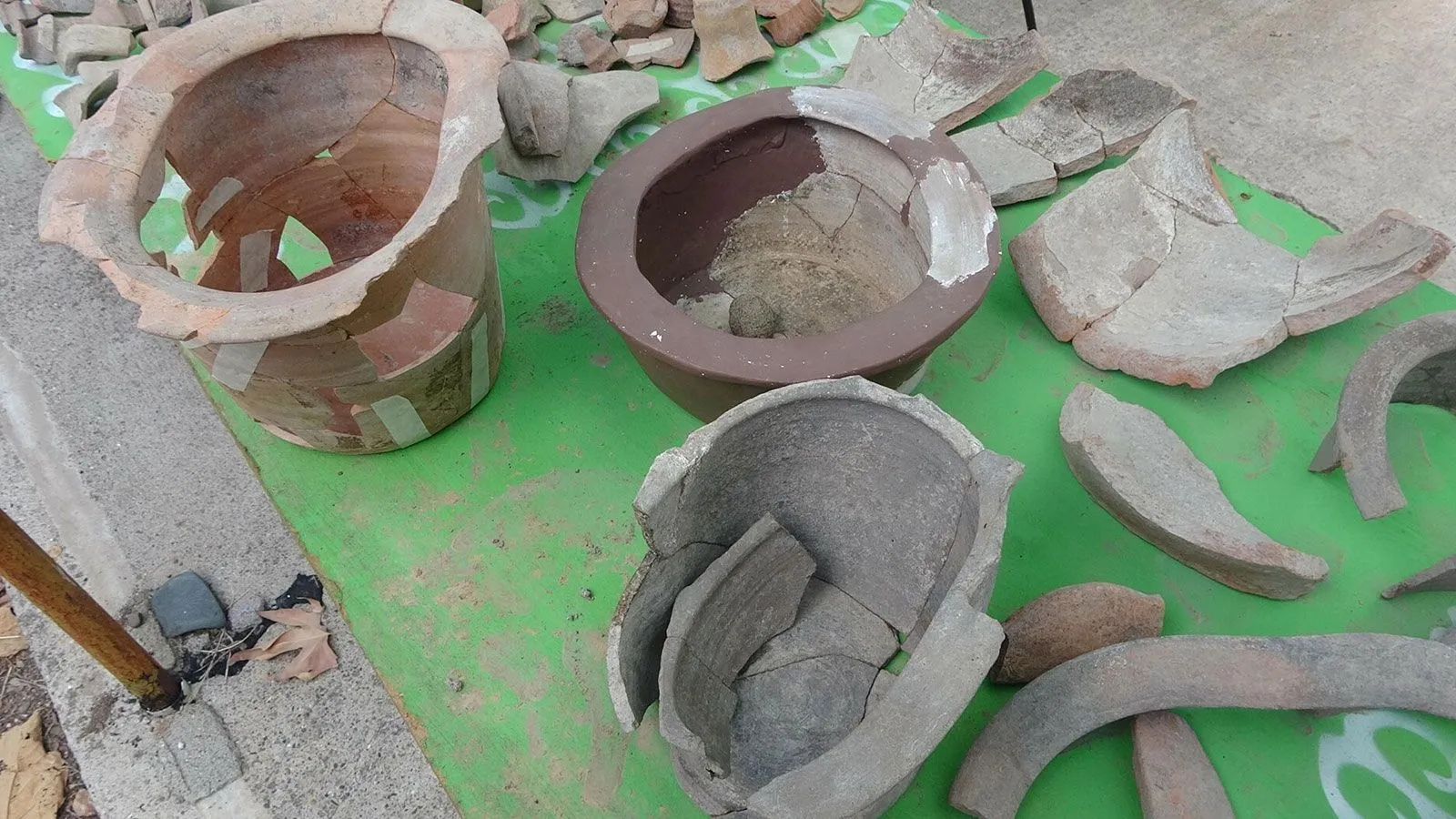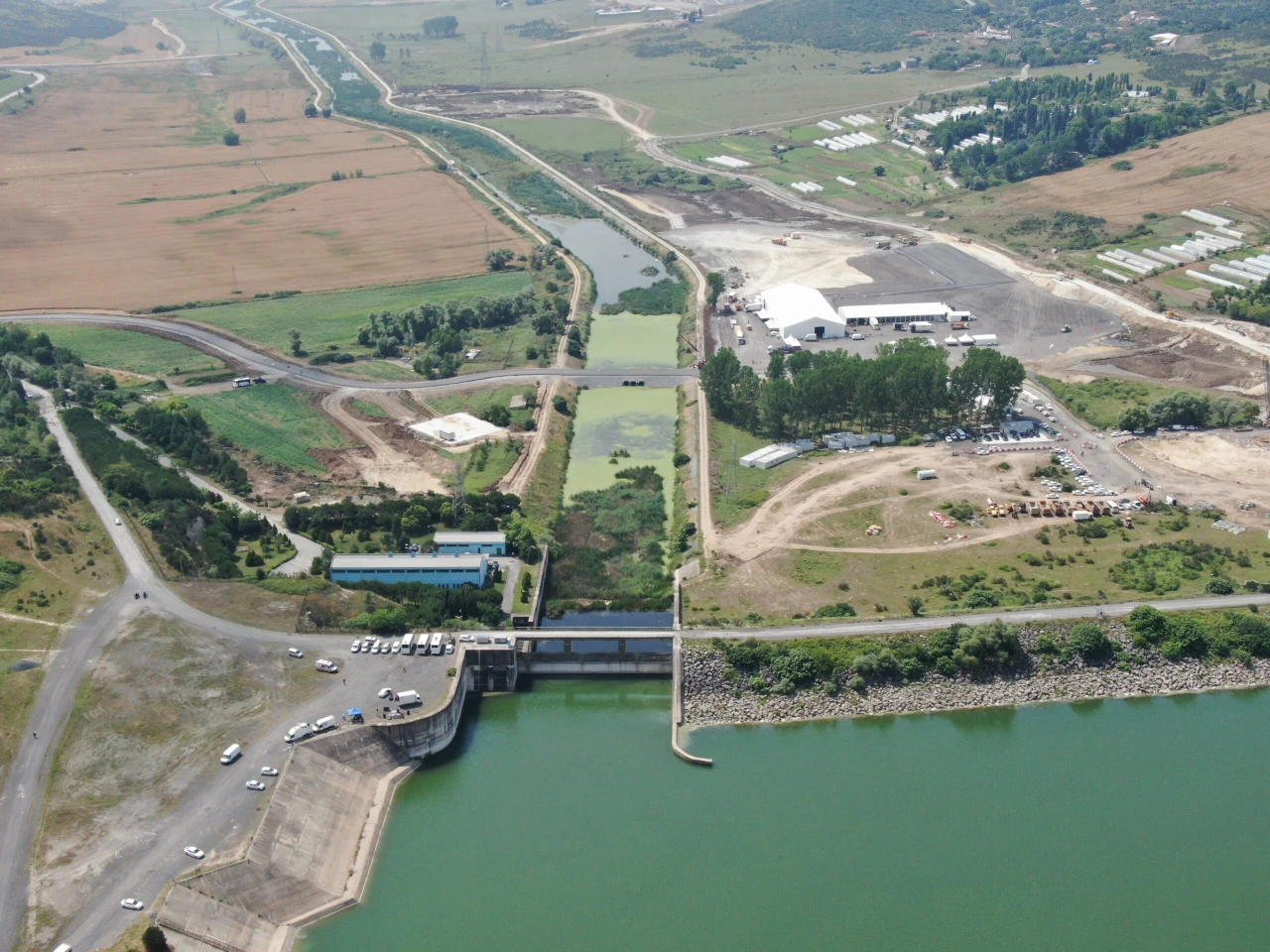Intriguing discovery in Türkiye’s Canakkale: 1,700-year-old chamber pots unearthed
 1,700-year-old chamber pots unearthed at the Assos Archaeological Site in Canakkale, Türkiye, October 1, 2024. (DHA Photo)
1,700-year-old chamber pots unearthed at the Assos Archaeological Site in Canakkale, Türkiye, October 1, 2024. (DHA Photo)
Excavations at the ancient site of Assos, located in Canakkale’s Ayvacik district, have brought to light 1,700-year-old ceramic chamber pots that were discarded after use. This significant discovery provides insights into the daily lives of people in the region during the Late Roman era.
Led by professor Nurettin Arslan from Canakkale Onsekiz Mart University‘s Department of Archaeology, the team of 25, comprising both local and international experts, continues to unearth fascinating remnants from this ancient city.

Discovery of ancient waste highlights daily life
The chamber pots were found in a refuse area east of the Agora, in a part of the city known as the Nymphaeum.
According to professor Arslan, this area served as a dumping ground for broken household items, including pottery and other waste, providing invaluable archaeological evidence about domestic life in ancient times.
“These refuse heaps offer a wealth of information about daily life,” Professor Arslan explained. “Each year, we uncover a new group of objects from this site, restoring and dating them to piece together more about the history of the city.”
Some chamber pots remarkably intact
The excavation team has uncovered a substantial number of ceramic pots, with some nearly fully intact. “Some of these pots can still be pieced together and restored to their original state,” Arslan noted. He added that although many objects were discarded due to damage, they remain valuable archaeological finds.

Trash heaps reveal life in ancient homes
Archaeologists stress the significance of refuse areas in understanding the material culture of ancient peoples.
The ceramics uncovered at Assos date back to the 2nd to 4th centuries AD, providing a snapshot of life during the Late Roman period.
“Although the objects were broken, we systematically collect every small fragment. These finds offer a glimpse into how people lived and the items they used in their homes,” Arslan concluded.
This discovery not only enhances the understanding of Assos’ history but also contributes to the broader knowledge of ancient Roman-era domestic practices in Türkiye.



